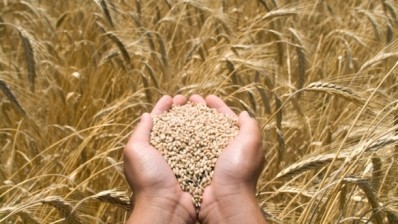Nordic diet may reduce inflammation, say researchers

The study, published in the American Journal of Clinical Nutrition, looked at 200 overweight and obese middle-aged adults with at least two features of metabolic syndrome, such as elevated blood pressure or fasting blood sugar levels, abnormal blood lipid values or being at least slightly overweight. Overall, the researchers found 128 genes in the subcutaneous adipose tissue (SAT) differed in expression across the Nordic and control diet groups.
The Nordic diet consisted of whole-grain products, berries, fruit and vegetable, rapeseed oil, three fish meals a week, low-fat dairy products, and the avoidance of sugar-sweetened products in line with the Nordic Nutrition Recommendations. Participants assigned to the control diet consumed low-fibre cereal products and dairy fat–based spreads and were limited in the amount of fish they could consume, determined by average intakes in Nordic countries.
The researchers said the 18- to 24-week randomised intervention study was the first of its kind in humans to show that dietary composition was associated with a reduction in the expression of a broad set of inflammatory genes in abdominal fat tissue, or SAT, including those related to the adaptive immune response.
Gene changes without weight changes
Participants were advised to keep body weight and physical activity constant and not to change their smoking habits and alcohol consumption or drug treatment during the study. No significant weight changes were observed during this time. As a result the researchers said the gene changes – tracked through adipose tissue samples taken at the beginning and end of the study - happened independently of body weight changes.
Participants of the study, which was part of the pan-Nordic SYSDIET (Systems biology in controlled dietary interventions and cohort studies) research, had a kg/m2 body mass index (BMI) of between 27 and 38. This latest research took place in six centres within Nordic countries.
Uncertainties remain
However the researchers from the Institute of Public Health and Clinical Nutrition at the University of Eastern Finland said the clinical relevance of the observed reduction in inflammatory gene expression remained unclear.
“It is possible that adipose tissue inflammation, via secretion of inflammatory mediators, increases the levels of these mediators in the circulation and thereby contributes to insulin resistance and atherosclerosis [a condition where arteries becomes clogged by fatty substances]. Admittedly, this speculation needs to be verified by measuring the secretion of inflammatory proteins from adipose tissue,” they wrote.
They said currently long-term human research into the relationship between diet and adipose tissue genes and inflammatory state was limited.
Source: American Journal of Clinical Nutrition
Published online ahead of print, doi: 10.3945/ajcn.114.092783
“Healthy Nordic diet down regulates the expression of genes involved in inflammation in subcutaneous adipose tissue in individuals with features of the metabolic syndrome”
Authors: M. Kolehmainen, S. M. Ulven, J. Paananen, V. de Mello, U. Schwab, C. Carlberg, M. Myhrstad, J. Pihlajamäki, E. Dungner, E. Sjölin, I. Gunnarsdottir, L. Cloetens, M. Landin-Olsson, B. Åkesson, F. Rosqvist, J. Hukkanen, K. H. Herzig, L. O. Dragsted, M. J. Savolainen, L. Brader, K. Hermansen, U. Risérus, I. Thorsdottir, K. S. Poutanen, M. Uusitupa, P. Arner and I. Dahlman






























